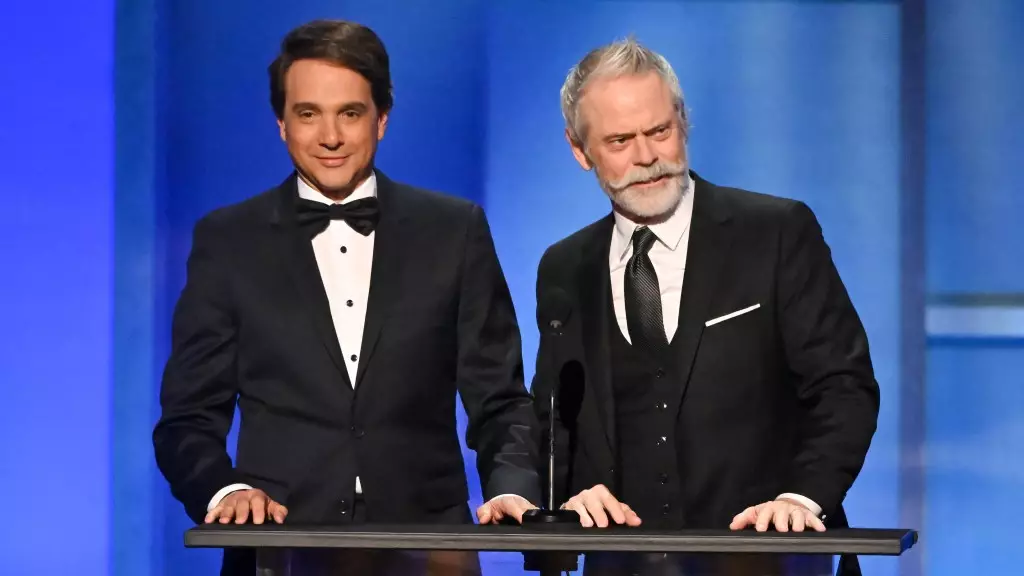Ralph Macchio’s recent homage to Francis Ford Coppola during the AFI Life Achievement Award Tribute is not just a touching story of gratitude; it encapsulates a broader discussion about the nature of artistic mentorship and the sometimes hidden debts artists owe their predecessors. In a nostalgic moment, Macchio reflected on a lesson imparted by a towering figure in cinema, illustrating how a simple gesture can foster a lifelong commitment to both personal growth and professional legacy.
Coppola’s unconventional method of teaching—giving Macchio a meager $5 to navigate a day—served not only to ground the young actor in his character but also to instill a deeper appreciation for resourcefulness. This act, while seemingly trivial, speaks volumes about Coppola’s philosophy of storytelling and the trials of life that imbue art with authenticity. Rather than a mere financial transaction, it became a lifelong lesson on survival, simplicity, and the pursuit of one’s passions despite external pressures.
The Significance of Symbolism
During the gala, Macchio’s decision to return the five-dollar bill was undeniably poignant. It transcended mere repayment; it represented a symbolic recognition of the profound impact that mentors like Coppola can have on an artist’s journey. Yet, one must ponder the implications of such symbolic gestures in a world that often values quantifiable success over genuine connection. Is it enough to simply acknowledge the past, or must we actively embody the lessons learned?
As Macchio quipped about finally returning the “debt,” he opened the door for introspection around the expectations placed on artists. The entertainment industry frequently casts a shadow over its luminaries, placing them on pedestals, ultimately leaving them isolated in their success. Macchio’s gesture highlights the necessity of humility and acknowledges the importance of reconnecting with one’s roots and the origins of the art they create.
Celebrating the Giants
The event gathered a host of industry luminaries—Steven Spielberg, Spike Lee, Al Pacino, among others—indicating a collective reverence for Coppola’s legacy. These figures share a kinship forged through the intricate tapestry of mentorship, collaboration, and, importantly, gratitude. This gathering isn’t merely celebrating a director’s past achievements; it embodies an acknowledgment of the communal effort that filmmaking necessitates. Each artist in attendance has either been shaped by the likes of Coppola or has attempted to carve out their legacy in the shadow of giants, emphasizing our innate desire for connection within the artistic community.
Coppola’s accolades are extensive, but it’s as much his ability to inspire as it is his technical prowess that has left a lasting mark on cinema. Each film he crafted invited conversations that challenged societal norms and pushed boundaries. Macchio’s tribute, therefore, serves dual purposes—it recognizes a mentor’s influence while simultaneously championing the ongoing dialogue about creativity and its mentors.
Such tributes should not merely be seen as applause but as public acknowledgments of the web of influence that binds artists together. They are a salute to the symbiotic relationship between mentor and mentee, highlighting that the journey towards an impactful career often begins with a single lesson, imparted through a simple five-dollar bill.

Leave a Reply